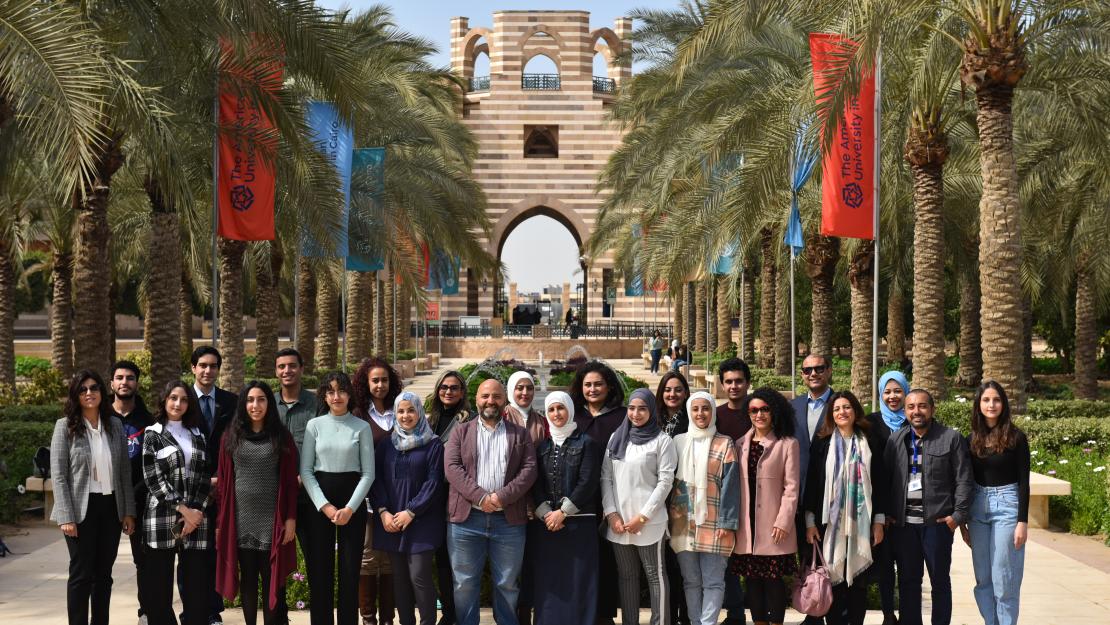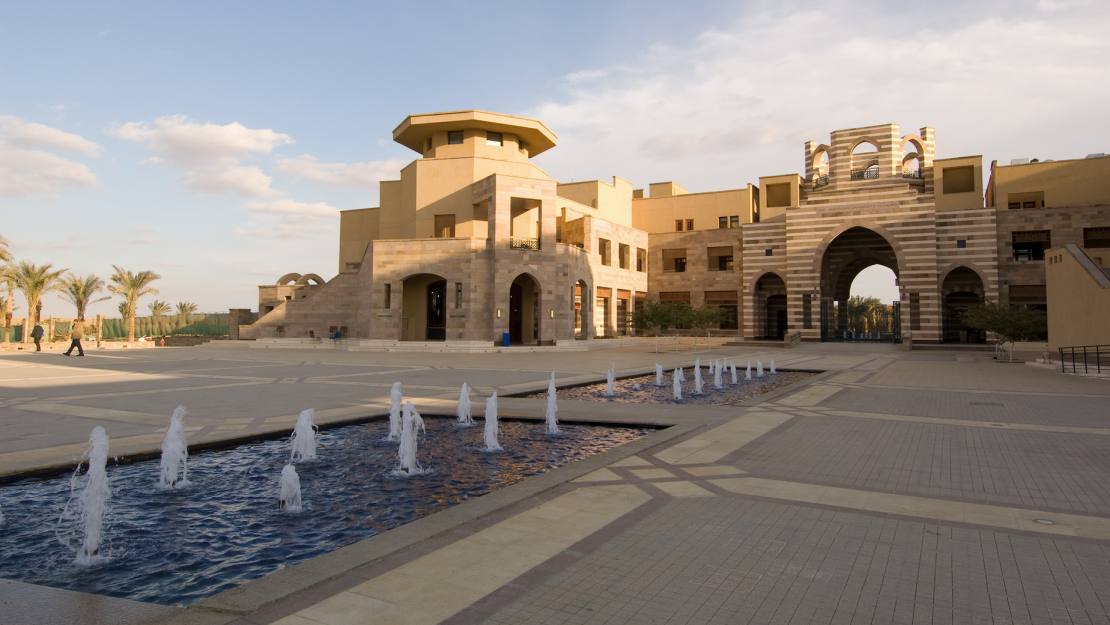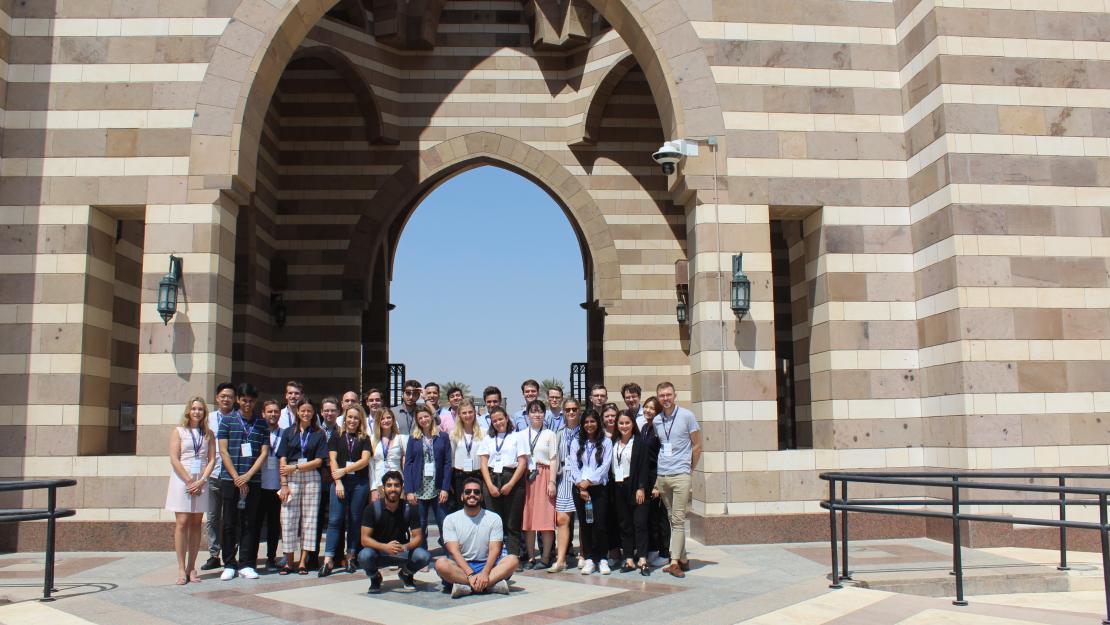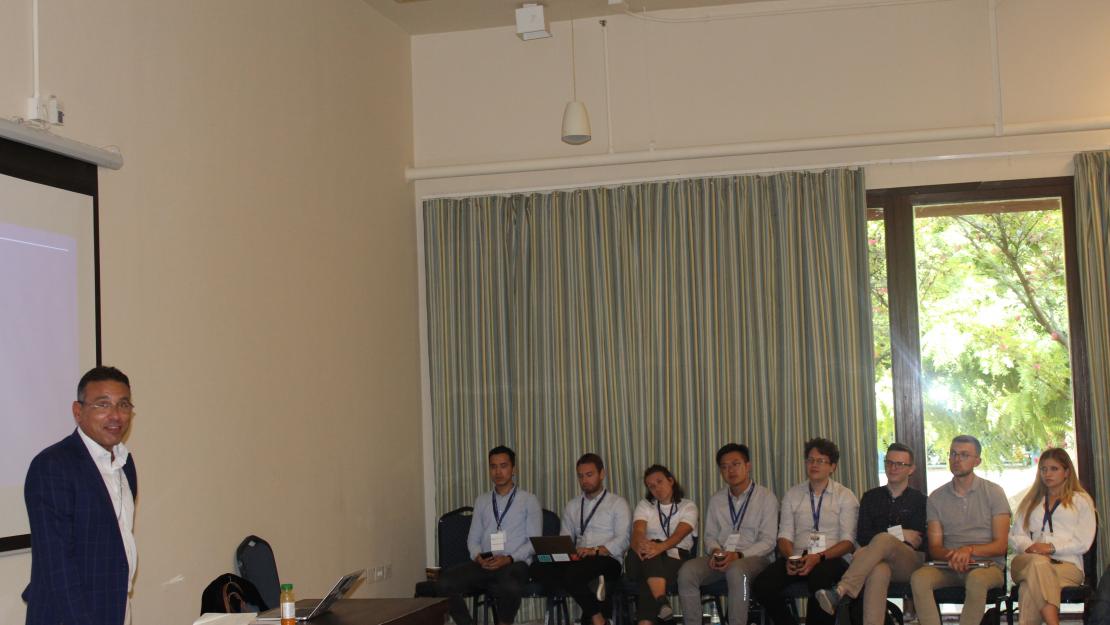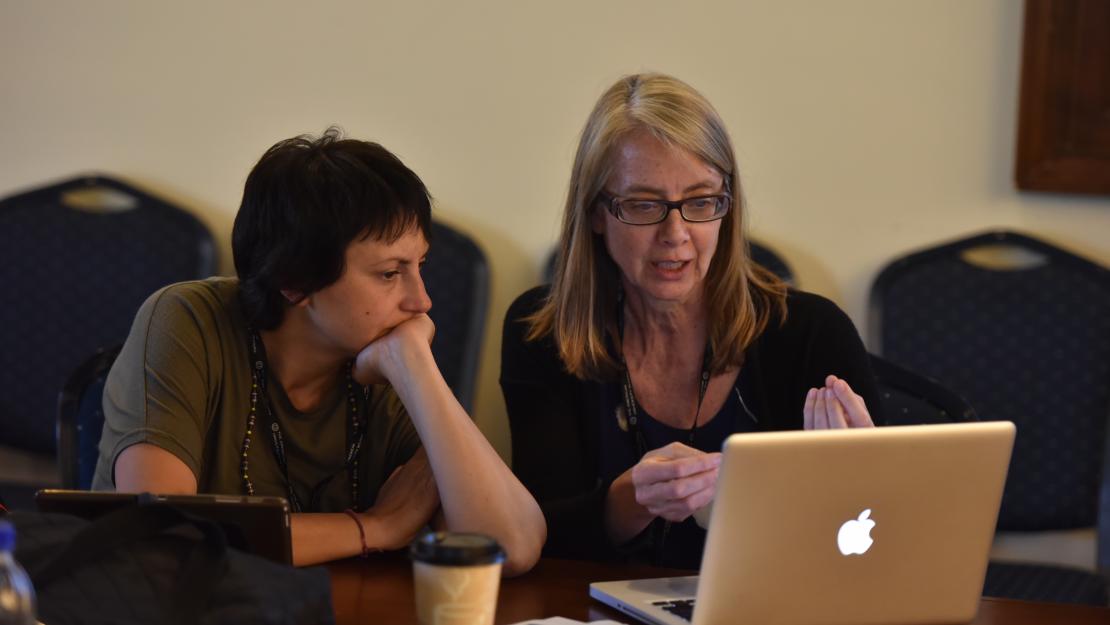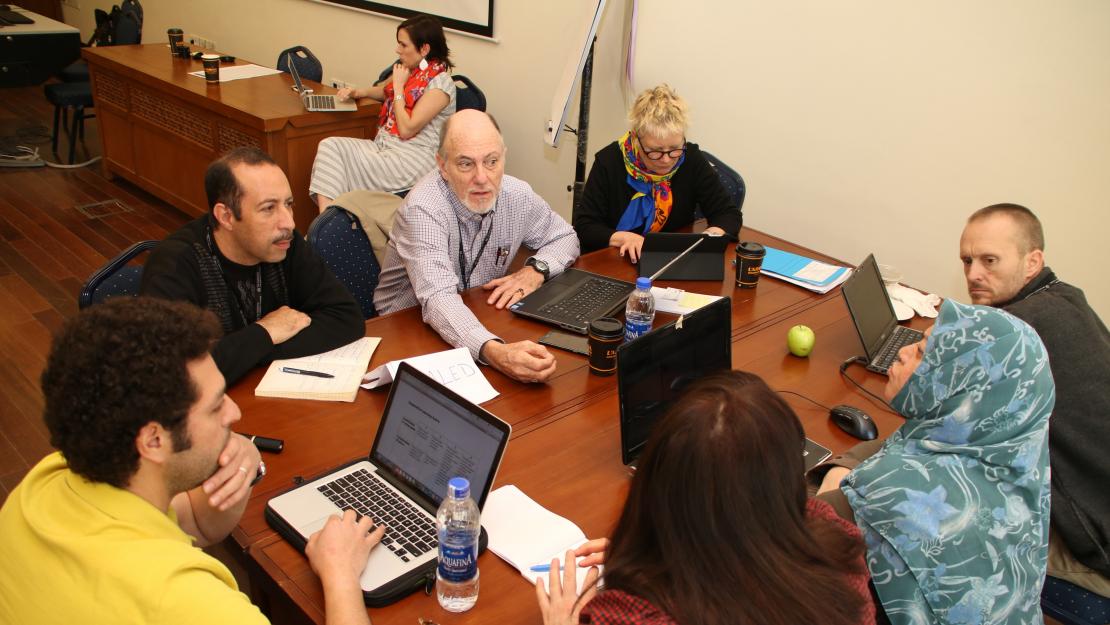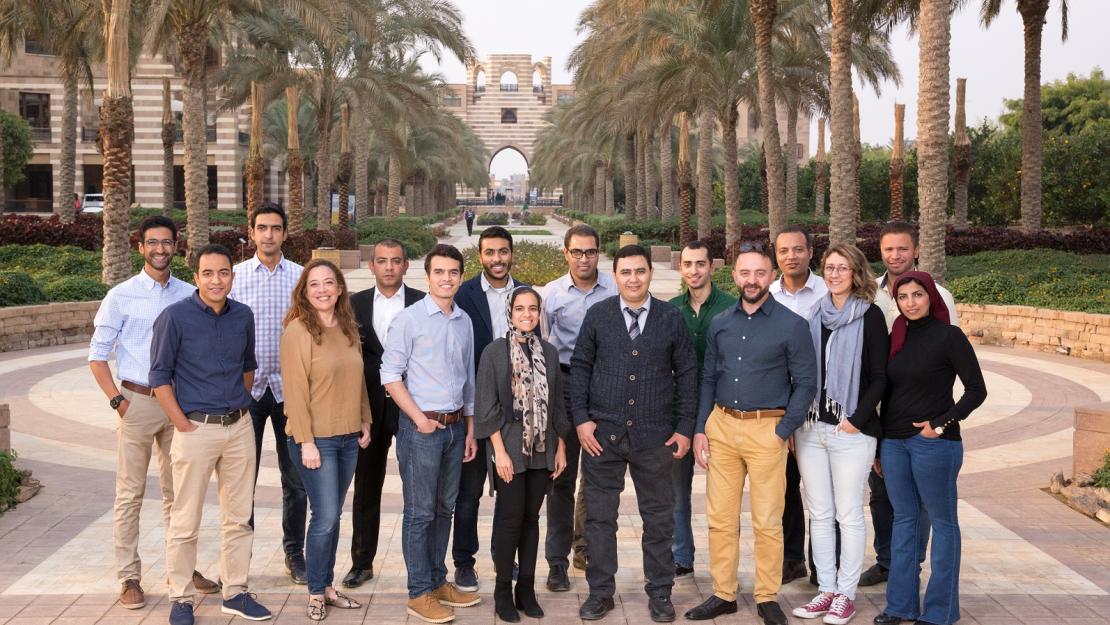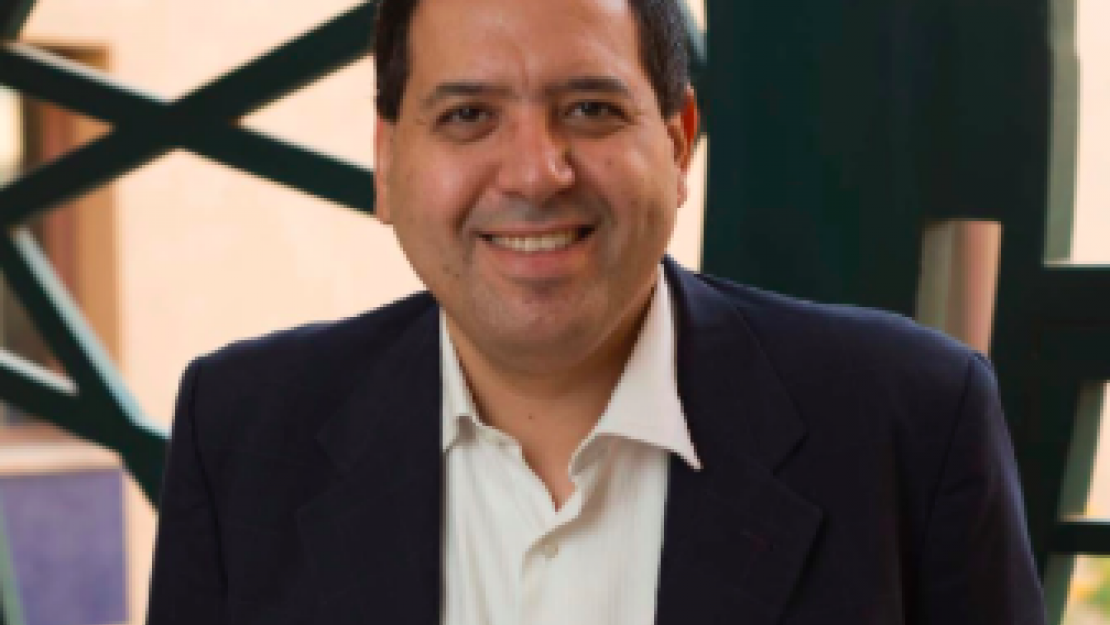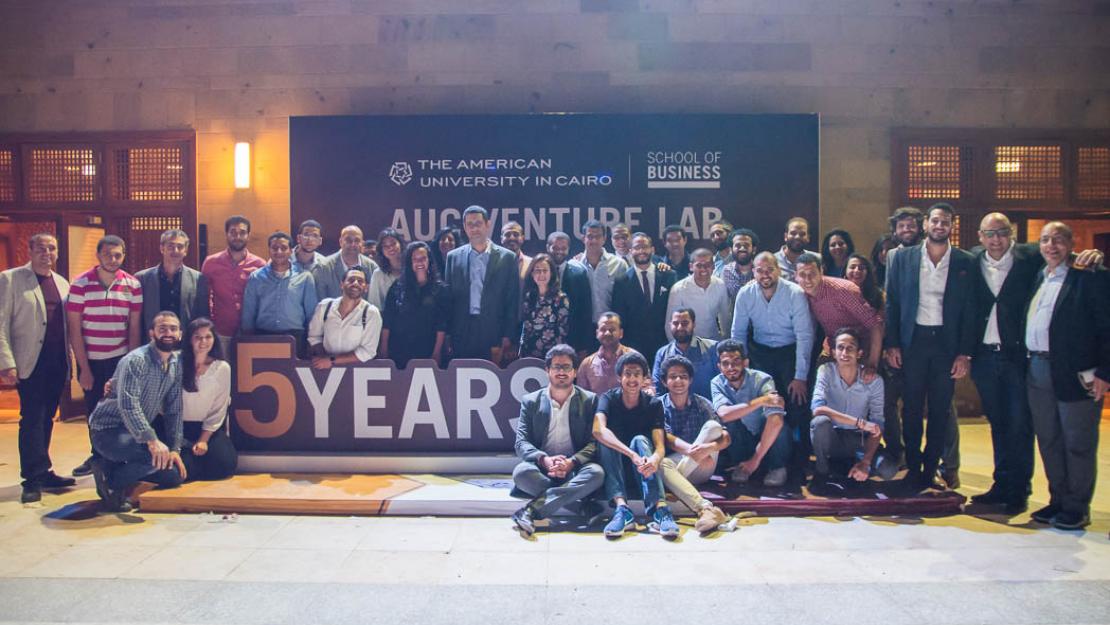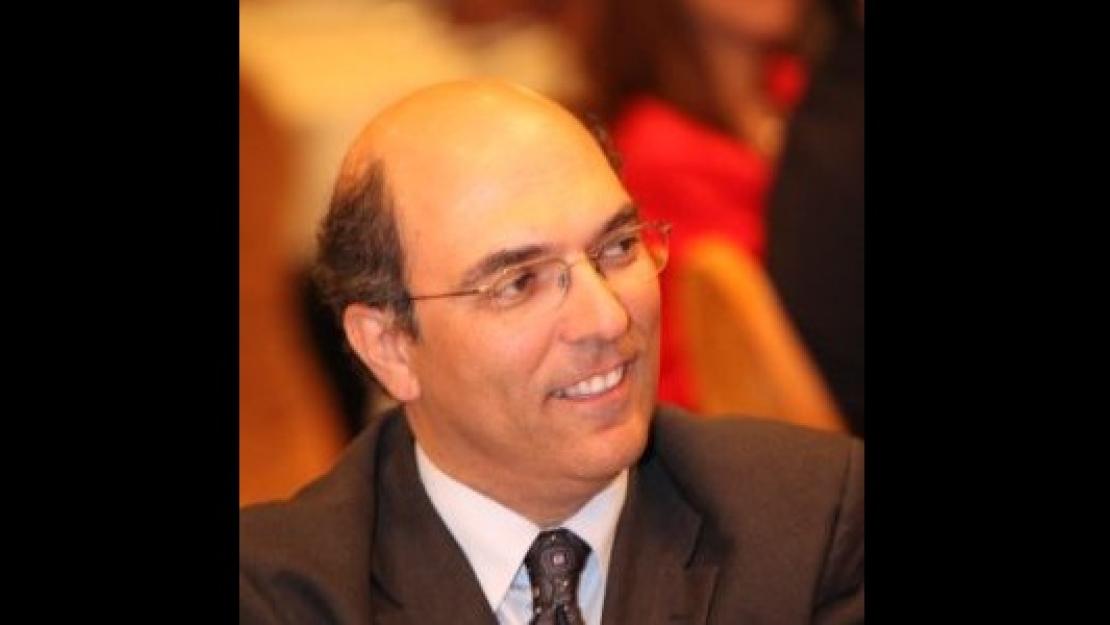The AUC Ethics HelpLine encourages the AUC community to report any acts of misconduct or violations of the University's policies on its premises. It guarantees confidential reporting and documentation of complaints, as well as the timeliness and completeness of the administration’s response. News@AUC spoke to Wessam Abozeid, senior director of compliance in the Office of General Counsel and Compliance.
What is the benefit of an Ethics HelpLine?
The AUC Ethics HelpLine is a tool to report any misconduct, actual or potential legal violations, or violation of University policy. The AUC Ethics HelpLine also provides the option to report anonymously. This confidential and impartial web-based system directs the reports to the authorized University official to handle the issue and track progress to ensure timely resolution.
During the AUC Ethics HelpLine’s three-month pilot phase, we will work to improve/optimize the system to meet the University’s needs.
Why does AUC need an Ethics HelpLine?
The earlier we address any potential misconduct, the easier we prevent or remedy any potential impacts or risks, and the better we improve our working and learning environment.
When should people file a report through the AUC Ethics Helpline?
Any situation, activity, or transaction that could potentially violate a law, regulation, or University policy or procedure could be a compliance issue. If you are concerned that an activity is inappropriate under these guideposts, or if you encounter a situation that simply feels wrong or makes you uncomfortable, you should speak to your supervisor or contact the University official that manages the area in which the issue has arisen. If, for whatever reason, you are uncomfortable going through these channels, or if you have raised an issue with the appropriate people but feel that it has not been addressed, you can make a report through the AUC Ethics HelpLine.
What are examples of types of cases that should be reported?
Examples include, but are not limited to:
- Any forms of waste, fraud, abuse, or neglect whether rising to the level of potential illegality or at minor levels, that appear relatively easy to rectify for the general benefit of AUC and our community;
- False claims, financial misstatements, or accounting or auditing irregularities;
- Undisclosed or unmanaged conflicts of interest;
- Physical, sexual, verbal, and mental abuse;
- Retaliation;
- Mismanagement or abuse of authority relating to a contract or grant, including the competition for or negotiation of a contract; and/or
- A substantial or specific danger to public health or safety.
What distinguishes the AUC Ethics HelpLine from other reporting platforms that currently exist?
Any community member (faculty, staff, students, vendors, and visitors) can use the AUC Ethics HelpLine to raise a concern. Additionally, the AUC Ethics HelpLine supports anonymous reporting. Meanwhile, only students can report concerns or violations through the Advocate system.
Is this common practice in other universities? Can you give examples?
Yes, most universities have several tools for reporting concerns and the option to report anonymously. Many US institutions such as Harvard University, Georgetown University, Columbia University, and Northwestern University, as well as the American University in Beirut, use the same third-party provider, NAVEX, to facilitate reporting.
Other examples include Lehigh University, Miami University, Cornell University, Villanova University, Claflin University, and the University of Buffalo.
Who manages the AUC Ethics HelpLine?
The Senior Director of Compliance manages the AUC Ethics HelpLine.
What is the role of the third party, NAVEX Global? What's the benefit of having this third party?
The NAVEX system is entirely stand-alone and web-based, which means it does not link to AUC’s internal systems. In fact, NAVEX, as the provider, is contractually committed not to pursue a reporter’s identity. This enables individuals to report issues and concerns associated with unethical or illegal activities while maintaining anonymity and confidentiality.
How can someone file a report?
The AUC Ethics HelpLine is carefully designed to maintain confidentiality and anonymity at every step. Go to the AUC Ethics HelpLine from any device (mobile, home computer, etc.) and select "Make a report."
Following the on-screen instructions, complete the report as thoroughly as you can. Specify what report you would like to make from the available choices and read the anonymity information carefully—it helps to ensure that you do not compromise your identity during the reporting process. It is recommended to include the following information about the incident you are reporting:
- Who: persons engaged in the incident, including titles
- What: what specifically occurred
- Where: the location of the incident
- When: the time and duration of the incident
Create a password and write it down with the "Report Key" that will be given to you. You will need both of these to follow up on, review, or amend your report later.
You may also email the Senior Director of Compliance at [email protected] or visit our office in person on the 2nd floor of the Administration Building to file a report in person.
Who can file a report?
Students, faculty, staff, vendors, or visitors to the campus may file a report through the AUC Ethics HelpLine.
Who accesses these reports?
The AUC Ethics HelpLine enters reports directly onto NAVEX’s secure server. NAVEX makes these reports available only to the Senior Director of Compliance and individuals designated by the University’s complaint procedures, who are charged to promptly evaluate the report and decide how to follow up for effective resolution. Depending on the nature of the report, the system will send it to the appropriate University official.
Can people file anonymous reports? Will their identity be known to anyone?
Yes, they can. The AUC Ethics HelpLine allows you to submit reports anonymously. The AUC Ethics HelpLine does not generate or maintain any internal connection logs with IP addresses, so no information linking your PC to the AUC Ethics HelpLine is available.
How do people who file a report guarantee that they will not be discriminated against afterward? Are there policies that protect them?
Reports filed through the AUC Ethics HelpLine (and reports made through other University channels) are covered by the Policy on Reporting Unethical or Illegal Conduct, which recognizes that reporting is a service to the University and prohibits retaliation of any kind for reports that are made in good faith.
What happens after someone files a report?
If you include your contact information when filing your report through the AUC Ethics HelpLine system, the Senior Director of Compliance will follow up with you directly to schedule an in-person or telephone meeting. If you file your report anonymously, NAVEX will send you an email when the Senior Director of Compliance responds to your report or asks you any follow-up questions. You will have the option to continue to respond anonymously via the AUC Ethics HelpLine.
Can someone provide additional information after filing a report? How?
When you file a report through the AUC Ethics HelpLine via the online system, you will receive a case key number and the system will ask you to choose a password. You can return to the AUC Ethics HelpLine system at any time to access the original report or add further information.
Will people who file a report be informed of the outcome? When?
Yes, the reporter will be notified of the outcome of any reports filed once the investigation is finalized. The investigation time varies on a case-to-case basis.
What can people do if a false report is filed against them? What if the report is anonymous?
Any reports or complaints filed through the AUC Ethics HelpLine will be fully investigated, and actions will only be taken based on the evidence found, not just based on the report itself.
How can people get more information about the AUC Ethics Helpline?
They may visit the AUC Ethics HelpLine page or contact the Compliance Office by email at [email protected] or in person on the second floor of the Administration Building.
